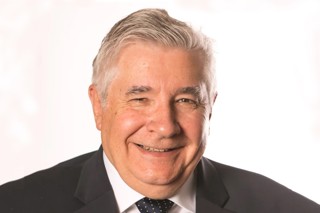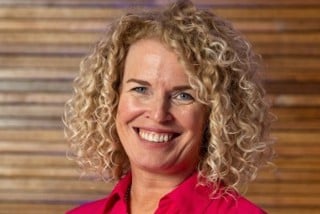Yorkshire-based Meridian Motor Group went through an intense burst of activity last year, making seven acquisitions in one six-week period alone.
Those acquisitions boosted turnover to more than £150 million from just over £100m, sent the group, which trades as Vantage, into the AM100 for the first time and took annual car sales to more than 10,000.
As if the sheer increase in size wasn’t enough to cause sleepless nights, the expansion also saw three new marques added to the business – Honda, Kia and Lexus – joining main brand partner Toyota, Citroën and Hyundai.
Yorkshire-based Meridian Motor Group went through an intense burst of activity last year, making seven acquisitions in one six-week period alone.
Those acquisitions boosted turnover to more than £150 million from just over £100m, sent the group, which trades as Vantage, into the AM100 for the first time and took annual car sales to more than 10,000.
As if the sheer increase in size wasn’t enough to cause sleepless nights, the expansion also saw three new marques added to the business – Honda, Kia and Lexus – joining main brand partner Toyota, Citroën and Hyundai.
FACTFILEMeridian Motor Group trades as Vantage out of its Harrogate base. It has 19 sales points – 10 Toyota, four Hyundai, two Citroën and one each of Kia, Honda and Lexus – at 17 locations The 2014 buying activity was called a transitional phase by the group and included the purchase of Barnsley Honda, Sytner’s four West Midlands Lexus and Toyota dealerships and Batemans Toyota in the Lake District. It also developed a new Kia site in Scarborough. The business was started in 2003 by Mark Robinson, who has worked for Sandicliffe, Pendragon and Lookers. Turnover has risen from £14m in 2003 to £105m in 10 years, profit before tax £102,000 to £811,000, return on sale is now at 0.8% and return on capital employed at 9.8%. |
|||
Understandably, such a buying spree is being followed by a settling-in period of consolidation, integration and a determination to see attractive returns on a considerable investment.
Mark Robinson, Meridian’s founder and managing director, spoke to AM to put the growth into context and explain how he and his staff will unite the business under the Vantage brand.
He is keen to emphasise that it is not all about growth.
“Our number one priority is not to be the biggest; we want to be the best. This is an easy thing to say, but we can be very specific about its meaning – to be upper quartile in everything we do, measured against our peers.”
Robinson acknowledges this is a work in progress and the company has “a long way to go”.
The second priority, he said, is to maintain the company’s status as a privately owned, medium-sized regional group representing a “sensible-sized” number of brands that themselves have a UK growth plan.
The self-imposed limitation on growth reflects the management ethos Robinson wants.
“We would stop being a medium-sized group if I had to put in another tier of management. I’m a hands-on retailer and I don’t think I’d be able to maintain the same level of control, with the same level of strategic direction,” he said.
Vantage’s board comprises four directors: Robinson is MD; Phil White, who previously ran the National Express Group and is Lookers’ chairman, is non-executive chairman (the pair are also joint owners on a 70:30 split); Tim Swindin is financial director; and Andrew Mallory is operations director.
The acquisition activity has seen the addition below the board of a franchise director, Jon Banner, responsible for the Toyota and Lexus businesses. He was previously general manager of network development at Toyota GB.
Andy McGevor has overall responsibility for Hyundai in the group, the second-largest brand represented after Toyota.
[page-break]
Prior to expansion, Robinson and Mallory had managed the business between them, with White a sounding board, an experienced business leader sitting in a sort of Dragon’s Den, who kept everyone on their toes.
“But buying businesses is the easy bit,” Robinson emphasised. “Integrating them and injecting your DNA into a business is a lot more difficult.”
Vantage’s Birmingham businesses are a case in point. Robinson’s initial goal when establishing Vantage was “10 dealerships in 10 years”. All had to be within a maximum 90-minute drive from Harrogate, Vantage’s headquarters and where White and Robinson live.
“It’s a great, central hub for Vantage, with our borders drawn between Scotland, south Yorkshire and Manchester and Derbyshire,” said Robinson.
The three Toyota businesses in the Birmingham area clearly fall outside this 90-minute ‘inclusion zone’.
“We broke our rule because as the UK’s second city, it provides a massive opportunity with a brand that has the potential to be in the top five for market share. The cost of entry for those businesses was sensible – it didn’t stretch the group financially,” said Robinson.
Integration was even more critical because of the geographic ‘stretch’. To cope, in this case – and more broadly in an expanding business – a central services team was created. It consists of the four directors, centralised accounts and marketing teams, a group aftersales manager, group used car buyer and a sales development manager, responsible for ensuring financial regulatory compliance, acknowledging the importance of PCP deals to the business and FCA regulation on the sector as a whole.
This central services team has enabled Vantage to integrate businesses effectively, particularly Birmingham, and manage the group efficiently.
Vantage’s ‘three pillars’ for acquiring motor businesses
The first challenge of integrating a business, Robinson said, has been building a relationship with the newly acquired leadership team, typically inherited under TUPE – Transfer of Undertakings (Protection of Employment) – regulations.
“We talk to everyone in the new business to establish whether, primarily, are they like us? Are they flexible, adaptable and willing to embrace change? We don’t buy a business to do nothing with it – so are these people prepared for an evolution in the way they work?”
This is one of ‘three pillars’ Robinson looks for in each acquired business. The other two are identifying specialists, whether sales staff, all-rounders in sales process, communication and marketing, or technicians skilled in diagnostics, and encouraging them to share their skills with the less able. The third is being inspirational, whatever you do in the business.
So what is an example of something that epitomises the ‘Vantage way’?
[page-break]
“The open and transparent communication we have on any subject,” Robinson said, with profitability key.
A programme called One Team recognises the contribution all Vantage staff make towards success. Every four months, a business plan is published showing the bottom line profitability expected of each centre each month, with customer satisfaction scores a primary measure.
A percentage bonus, separate to any other existing commission or incentive, is then available on achieving the target. It’s shared equally among all staff in the successful centre, with the exception of the leadership. A 100% score in customer satisfaction scores triggers the bonus payment in each four-month period.
“Every week, each centre will have a five-minute meeting and discuss the month’s forecast. It means staff understand what is happening in the business on a real-time basis,” said Robinson.
Vantage is the third-biggest Toyota operator in the UK by volume, but Robinson is more proud of it being among the best for customer satisfaction and works hard to ensure financial incentives are not the only factors driving the right behaviour. “We talk to staff to see what success means to them and I’m most disappointed if it is money and not pride. In our Toyota businesses, Jon [Banner] runs a balanced score card across the division and the centre at number one doesn’t want to lose that status. The centre at number 10 wants to improve. Pride drives both ambitions.”
Robinson believes the initiative reflects Vantage’s commitment to decentralised responsibility and empowerment. The central services team, for example, should not be seen as an adoption of a top-down management ethos, Robinson believes, but more to do with the need for someone in the centre to take 100% responsibility for the business and full accountability.
Beyond this, he believes in staff having a different sort of ownership: “When I was a general manager, I treated the business as if it was my own. I want our general managers to do the same.”
What power does this approach bring with it?
“It’s very difficult to make a mistake in Vantage that you will be taken to task over,” said Robinson.
“You can make a mistake as long as you’re prepared to be challenged over it – why did it happen, what could have been done to prevent it and how will you prevent it happening again? Then it’s go away and sort it out, with whatever help you need.”
The motivation for this approach is for “never-ending improvement”.
[page-break]
Listening to staff for business opportunities
Staff are encouraged to challenge Robinson with new ideas. One centre began selling service plans in 2004 before being acknowledged centrally and rolled out across Vantage.
A more recent example of a business opportunity that came to light this way was a brake-skimming service.
A service manager decided to increase the lifetime of brake discs by skimming to remove corrosion, wear and rust and thickness variation, rather than selling replacement discs. Robinson said it’s not as lucrative for the business, but has more integrity.
“We’ve applied this approach across the business.”
He also revealed some of the quirks in his management style. For example, when he visits a centre, he never goes in by the front door, but via the workshop.
“I say hello to the technicians. Traditionally, they got a rough deal in the trade from an acknowledgement and recognition standpoint, but they’re as hungry for information as anyone else. Every member of the team is as important as the next.”
Robinson encourages staff to complain if he doesn’t acknowledge them and to ask him anything about the business. “Most of the time I believe I could impart something of value,” he said.
He also has a lot to say about smiling: “Body language and facial expression are as important as words. If I shuffle into a centre looking at my shoes, staff are going to wonder what’s wrong.”
During job interviews, Robinson always asks a candidate if it is ever appropriate to lie? “If anyone says no, they’re lying,” he said. “A smile is essential even when I’m faced with difficulties, even if in a sense you are lying about your frame of mind.”
Avoiding the downside of expansion
Vantage’s finances provide evidence of some of the negative impacts of rapid business expansion. Return on sale (RoS) from 2012 to 2013 slipped from 1.5% to 0.8%. Profit before tax in 2013 was at £811,000, its lowest since 2009.
A lot of this is down to writing off acquisition and other costs. Vantage didn’t pay much goodwill in its transactions, but professional fees were high.
“We’re very aggressive with our accounting policies; we don’t hide things in our balance sheet. Some of the businesses we acquired in 2013 were experiencing difficult trading conditions.”
There is no ‘war chest’ to fund acquisitions, but there has been headroom available in being able to source funding. Gearing is at more than 100% now, said Robinson, but in 2007, at the time of the purchase of the North West Vantage businesses, gearing went up to 500%.
[page-break]
“Now we try to grow sensibly while trying to bring gearing down.”
Making good of the new, expanded business means Robinson aspires to a national average RoS in the short term. For Toyota, this is about 1.6%, with the top quartile approaching 4%.
“But do the marques we represent overall give us the opportunity to be amongst the best? Probably not. A sensible objective in the medium term would be 2%.”
This will be achieved through, of course, increasing revenue and managing costs.
Vantage isn’t a lifestyle business. “We want to invest every groat of profit back into the business to strengthen it.”
Virtually everything Vantage makes, apart from the salaries the directors pay themselves, goes back into the business. “Look at the standard of facilities we operate. I’d stop short of saying I have OCD, but they mean everything to me. Owning property as well encourages you to look after your investment.”
Vantage has further expansion on the horizon
After a period of consolidation, what comes next? Robinson has it mapped out: “2014 was about consolidation and focus on the development activity in the business. The next move is another acquisition with a partner we’re already representing.
“Also, as a result of our profile changing in the last 12/18 months, we’re starting to receive interest from manufacturers we don’t represent. But we’re not deal junkies. Deal junkies deliver junk deals. We will remain true to our core principles. We only want to represent manufacturers with a vision for growth, which they can demonstrate to me. And as a petrolhead, they have to offer product I would want to drive.”
The brand portfolio will grow too, with Robinson hinting at adding a German marque to the mix. Details are not available, but Robinson is specific about the rationale behind his current brand partners and the importance of brand power.
He says he has 100% belief in Toyota, owing them a debt from when he was a sponsored retailer in 2003, and then as now, being able to speak confidently of its position today in the market, where it wants to be and how it is going to achieve this, with “everyone in the business sharing the vision”.
Toyota also recognises that after the customer, the dealer is the second priority since without a dedicated retail network it doesn’t have a future, Robinson said. This has led to a stable network, of about 180 franchised outlets for the past 10 years.
However, Robinson, who is chairman of the Toyota dealer council this year, acknowledges that there are challenges.
[page-break]
Sales and market share haven’t recovered from pre-2009/2010 recalls and 2011 tsunami levels. While performance is improving, Toyota’s overall rating in the National Franchised Dealers’ Association Dealer Attitude Survey remains at a record low. But Robinson is confident: “Toyota will recover and towards the end of this decade will be stronger than ever.”
He has a similar view of Honda, but from different beginnings. In 2008, Vantage was an approved future partner for the brand, but declined the acquisition opportunities presented to it, because “none were viable”.
The change in heart came despite the impact of the 2011 tsunami and the recession, which hit Honda harder than Toyota.
Vantage’s Barnsley deal was done after Honda proved the business was viable based on current volume, share and parc in the territory. Product launching this year (Civic Type R, NSX and Jazz) is “the first step towards recovery”. (See Honda analysis, Page 25.)
Product power, with the DS range in particular, helped catch Robinson’s imagination and, in part, led to the acquisition of two John Wilding businesses.
The level of investment in Hyundai in 2014 – £5m in facilities, including a new centre in Stockport – demonstrates his commitment to the brand.
He also hopes filling an open point for Kia in Scarborough (“sea on one side, sheep on the other”), building a red box showroom and strong sales will see more interest from this Korean brand in Vantage.
“Kia’s got a very stable network. We’d jump at the chance for more and with the growth in parc and aftersales business it could lead to capacity issues for Kia – it will need more space.
“Our Scarborough business is too big today, but in three years’ time our business plan looks very different.”
How Pre-reg affects the market: ‘Probably about a third of registrations are artificial’
New car market sales figures are being distorted by an excessive volume of pre-registrations, believes Robinson. “On paper, the industry appears to be booming,” he said. “Realistically, this isn’t a true reflection of what’s happening. Probably about a third of registrations are artificial.”
German brands, in particular the premium marques, have been selling product to the UK, providing their own financial support to residual values making them very attractive buys, he believes. “This has left other manufacturers struggling to compete and in order not to lose share [they] have had to find an alternative means of maintaining it.”
Robinson disagrees with the idea that the record new car market is a result of pent-up consumer demand being released after the recession: “The market is just managed extremely well. The German brands are adept at using product power to pull in business, while other brands are having to push product to market harder.
“But overall, UK retailers have a lot to be proud of. I visited a Toyota dealership in the US recently and another in Japan and while the Americans, in particular, are very good at customer retention, the UK is a global leader in terms of technology use, process and marketing.”
Robinson said he hopes for more stability, or mild growth, in the new car market this year: “As the European market gains more traction, some manufacturers will start to reduce the financial incentives they have been offering in the UK, which has fuelled the growth in genuine sales and prompted high pre-registration activity. The German premium brands won’t support residual values the way they have been in the UK, as the previously excess production capacity will be sold more profitably in other markets.”
Login to continue reading
Or register with AM-online to keep up to date with the latest UK automotive retail industry news and insight.





















Reg Willcox - 18/02/2015 13:59
I know the problem